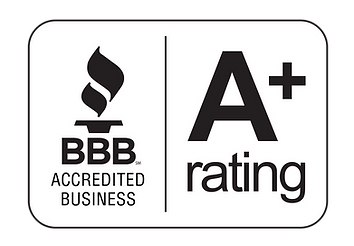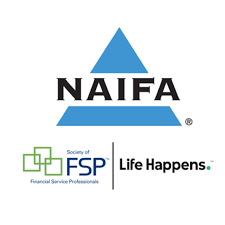What You Need to Know
QUALIFIED SETTLEMENT FUNDS (QSF)
What is a QSF? What Are the Benefits of a QSF? What are the Limitations of a QSF?
Qualified Settlement Funds (QSF)
468B Qualified Settlement Funds | What You Need to Know 2025
What is a Qualified Settlement Fund (QSF)?
A Qualified Settlement Fund (QSF) is a settlement tool that, when established pursuant to Court Order, assumes the tort liability from the original defendant party (or parties) before the settlement is made, at which time the original defendant party (or parties) is (are) dismissed with prejudice. The Qualified Settlement Fund (QSF) then stands in the shoes of the original defendant party (or parties) with the Plaintiffs. The Qualified Settlement Fund (QSF) may enter into a Settlement Agreement with the plaintiffs and can enter into a Qualified Assignment, pursuant to the terms of Rev. Proc. 93-34 .
Origin of the Qualified Settlement Fund
The "Qualified Settlement Fund" or QSF, came into being in 1993 when the United States Treasury issued regulations under 26 CFR 1.468B-1. It is sometimes referred to as a 468B Settlement Fund or 468B Settlement Trust, or occasionally by glib salespeople using the septic term "holding tank". Rest assured there is no need to call the "pump out boat". The 468B Qualified Settlement Fund's origins stems back to the Designated Settlement Fund concept introduced in 1986, which enabled defendants to deduct amounts paid to settle class action multi-plaintiff lawsuits, before it was agreed how these amounts would be allocated. In these cases, the defendants and plaintiffs
had agreed how much the defendant(s) or their insurers would pay to settle the cases collectively, but not individually .
Benefits of a Qualified Settlement Fund to Defendants
- Pay and walk away with a full release .
- Tax deduction A QSF enables the defendant (or insurer) to accelerate its tax deduction to the date that the settlement amount paid is to the Qualified Settlement Fund in exchange for a general release, rather than when each plaintiff, signs and is paid.
- End of Year Tax Planning A QSF may come in useful in end of year or quarter financial planning, where settlement negotiations stretch to the end of the year or the end of a quarter, an already established QSF can be helpful in establishing a paid loss.
Benefits of a Qualified Settlement Fund to Plaintiffs
A qualified settlement fund may be favored by plaintiff attorneys under appropriate circumstances because:
- litigation can settle now, constructive receipt can be avoided, leaving all client settlement planning options open (including structured settlements) where the qualified settlement fund involves multiple claimants. Please note that using a qualified settlement fund involving a single participant may limit the choices if structured settlement annuities are desired.
- enables clients to get proper counseling and wealth orientation (at a pace that is comfortable to them) on multiple claimant cases, while determining appropriate distribution amounts to their clients.
- in some cases, where there are concerns about the solvency of a defendant or insurer, resolving a case via a QSF eliminates risk of insolvency of the defendant or its insurer
- allows time for an agreement on allocation and negotiation of lien claims.
- it can be very useful to administer mass tort cases where there are multiple disparate defendants contributing to the settlement.
- with New York state wrongful death cases, a QSF may be an option to help overcome a potential legal malpractice trap created by legislative oversight in a 2005 amendment to EPTL 5-4.6. There are other ways to tackle the problem besides using a qualified settlement fund, but not after the settlement has concluded.
- on the right case with multiple plaintiffs, may have more flexibility in making appropriate choices for distribution of the settlement in cash, in structured settlements that can provide a secure income stream, and/or a Settlement Preservation Trust, and/or in a Special Needs Trust to preserve Medicaid and Supplemental Security Income (SSI), and can benefit from interest accumulation of funds, in the Qualified Settlement Fund (QSF), if the distributions are not immediate .
- it widens the options for attorney fee deferral options and structured attorney fees for plaintiff lawyers. Some insurers like Travelers, will not participate in structured attorney fees and a few others will only structure attorney fees if the plaintiff is structuring as well.
When Can a Qualified Settlement Fund Be Considered?
A Qualified Settlement Fund (QSF) should be considered in tort, class action, or environmental (CERCLA), breach of contract cases, or violation of law involving multiple claims and the Respondent(s), Defendant(s) or insurance carrier(s) is (are) willing to comply in exchange for a complete General Release from the Claimants or Plaintiffs.
Who Can Approve the Establishment of a QSF According to Federal Regulations?
§ 1.468B-1 Qualified settlement funds (c)(1) "A fund, account, or trust satisfies the requirements of this paragraph (c) if—
It is established pursuant to an order of, or is approved by, the United States, any state (including the District of Columbia), territory, possession, or political subdivision thereof, or any agency or instrumentality (including a court of law) of any of the foregoing and is subject to the continuing jurisdiction of that governmental authority"
Cite:
LII Electronic Code of Federal Regulations (e-CFR) Title 26—Internal Revenue CHAPTER I—INTERNAL REVENUE SERVICE, DEPARTMENT OF THE TREASURY SUBCHAPTER A—INCOME TAX PART 1—INCOME TAXES Research Credit—For Taxable Years Beginning Before January 1, 1990 § 1.468B-1 Qualified settlement funds.
Mechanics of Setting up a Qualified Settlement Fund
A Qualified Settlement Fund, or QSF, is a fund, account, or trust established under applicable state law. A court can order that the defendant (or insurer) pay the agreed settlement amount into a Qualified Settlement Fund "within the meaning of 468B-1 of the Treasury Regulations". This can be a simple checking account or a more complex trust agreement using a bank trust department. Fees vary. One institutional trustee charges a nominal fee of $360 to establish a QSF, however others charge thousands. There is often a per capita cost as well. An experienced trustee or administrator is important as certain formalities must be followed. The settlement proceeds remain in the Qualified Settlement Fund subject to the continuing jurisdiction of the court. After the dispute is resolved, the court approves the allocation and orders the payment of settlement proceeds and the fund may be closed. We partner with top notch independent QSF administrators to keep costs down without sacrificing quality.
Can a Single Claimant Qualified Settlement Fund Be Used
To Set Up a Structured Settlement?
Yes, a single claimant qualified settlement fund can be used to set up a structured settlement however, the choices are limited. Many structured settlement annuity issuers today are reluctant to have their qualified assignment companies accept a qualified assignment from a single claimant qualified settlement fund. Today Independent Life Insurance Company is the only one with an overt appetite for that business. Independent Life structured annuities are not presently available in New York. Efforts by industry members to get clarification from the United States Treasury have thus far been fruitless and the issue was removed from Treasury's priority guidance list in November 2009. However it's possible to create periodic payment solutions using non qualified assignments.
Qualified Settlement Funds | Where Lawyers Need to Exercise Extreme Caution With QSFs
1. A QSF is not a solution for every case. Be cautious with settlement planners who aggressively promote them.
2. A Master QSF may be a fable according to a February 2020 presentation by San Francisco tax lawyer Robert Wood, Esq, a tax expert referred to in a 2018 Legal Examiner blog as " the most credible and professional authored tax attorney expert in the country when it comes to lawyers fees, QSFs, and attorney fee deferral", by a New York settlement planning firm that aggressively promotes a Master QSF. Does the proposed QSF meet the "resolve or satisfy rule" for an event (or "related series of events" as required by Internal Revenue Code Section 1.468B-1(c)(2)?
3. Firmwide Qualified Settlement Funds ( Firmwide QSFs) have been questioned in a recent detailed analysis by the Philadelphia law firm of Faegre Drinker Biddle and Reath LLP, which concluded in July 2022, that a Master Law Firm Settlement Account is an arrangement that is unsupportable under the Treasury Regulations, contradicts existing Internal Revenue Service (IRS), and is inconsistent with case law from the United States Supreme Court that governs the income tax treatment of contingent attorney's fees. See our July 21, 2022 blog Firmwide QSF's Debunked for more detailed information about Faegre Drinker's analysis of the scheme that should be of interest to plaintiff lawyers as well as defense ortiented lawyers, insurance claims executives and corporations settling claims or litigation acting within their self-insured retetention.
4.
One stop shopping may not be healthy when it comes to QSFs and qualified assignment companies directly or indirectly owned by settlement planners. Per Rev Proc 93-34 Section 4.01(3) one of the requirements for a qualified settlement fund to be a "party to a suit or agreement" is that the assignee
is neither controlled by, nor controls, directly or indirectly , the designated or qualified settlement fund".
5. Some settlement planners promote a single claimant qualified settlement fund as part of a strategy to create purported qualified assignments funded with factored structured settlement payment streams, which are neither annuities nor insurance products, despite being marketed in some cases by licensed insurance people and using misleading terms like : secondary market annuity", "secondary market annuities", "SMIA", or "SMA". The National Association of Insurance Commissioners, in its Statutory Issue Paper No. 160, unequivocally stated that acquired structured settlement payment streams are neither annuities nor insurance products. If it's not an annuity or an obligation of the United States, then it's not a qualified funding asset.
Without a proper qualified funding asset, the entire qualified assignment for your structured attorney fee or structured settlement could be in jeopardy because all prongs of IRC 130(d) fail, leading to a potential IRC 130 failure of the qualified assignment. Without the tax exclusion provided by IRC 130, the qualified assignment company has a huge tax liability.
6. One aggressive promoter suggested in a March 2020 webinar on Qualified Settlement Funds targeted to trial lawyers such as those members of NYSTLA, PAJ and other state trial lawyers and AAJ, that his firm had a "revenue procedure ruling" from 2003 that says that "if you create a proper periodic payment then it can be backed by investments so that it's black and white". That is simply not the case from reading the plain language of Rev. Proc. 93-34, which at Section 3 titled Scope, expressly states " In addition to the requirements provided by this revenue procedure, an assignment by a designated or qualified settlement fund of a liability to make periodic payments must also satisfy all the other requirements of section 130 to be a qualified assignment" . Referring to IRC Section 130(d), the only permissible qualified funding assets are annuities and obligations of the United States. Once again, factored structured settlement payment streams are not annuities and in the 40 states that (as of July 2023) have adopted the 2017 Revisions to the Life & Health Guaranty Association Model Act (#520), there is no investor protection for attorneys or plaintiffs investing in the factored structured settlement payment in the event of annuity issuer insolvency. As other states adopt, please note that once the Model Act is approved in a state, there are provisions relating to acquired stuctured settlement payment rights exclusion for insolvency,that apply retroactively (i.e. no "grandfathering")
Where a QSF is appropriate for our clients, we partner with qualified,experienced and insured independent QSF trustees.
To learn more about qualified settlement funds or adminstration of QSFs, please call
888-325-8640
Is it 468B Qualified Settlement Fund, 468(b) or 468b Qualified Settlement Fund?
It's 468B all the way. IRC 468(b) or IRC 468(b) are just not correct for qualified settlement funds. Here's why letters do matter. 26 U.S. Code § 468 - Special rules for mining and solid waste reclamation and closing costs | U.S. Code | US Law | LII / Legal Information Institute (cornell.edu) IRC 468(b) is for "Allocation for property where election not in effect for all taxable years". Yet you may find that some settlement planning firms proudly opt for an unbracketed lower case b.
Last updated May 18, 2025
#qualifiedsettlementfund #qualifiedsettlementfundconsulting #qualifiedsettlementgfundinfo #qualifiedsettlementfunds #QSF #468B #qualifiedsettlementfundexperts #whatisaqsf #breathingspace #masstorts #QSFtrustees #QSFquestions #firmwidequalifiedsettlementfund #establishmentofQSF





